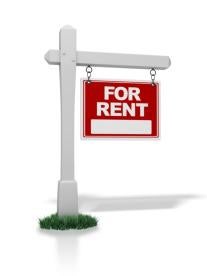Assembly Bill No. 2093 is in effect.* It amended Civil Code Section 1938 to require landlords to provide prospective tenants with any report and/or disability access inspection certificate issued by a Certified Access Specialist (CASp) for the premises being leased. In addition, landlords are required to insert in their leases the following:
-
A disclosure stating whether or not the subject premises have undergone inspection by a CASp; and
-
A statutory CASp inspection disclosure when an access inspection certificate has not been issued for the subject premises.
This law took effect on September 16, 2016, so immediate action is required.
Mandatory Requirements and Disclosures for Commercial Leases
CASp Report. Under the amended statute, if the subject premises have undergone inspection by a CASp, and there have been no modifications which have impacted accessibility since that inspection, then the landlord is required to provide the prospective tenant with a copy of any report prepared by the CASp in connection with that inspection. The tenant must keep such report confidential, except as necessary for the tenant to make repairs.
In addition, the prospective tenant has the right to review any CASp report at least 48 hours prior to execution of the lease. If the report is not provided to the tenant, the tenant has a right to rescind the lease based upon information contained in the report for 72 hours after execution of the lease. If the CASp report indicates that the subject premises meets applicable standards, the landlord must provide a copy of the current disability access inspection certificate and any inspection report to the tenant within seven days of the date of execution of the lease.
Repairs. Section 1938, as amended, presumes that the landlord is responsible for making necessary repairs to correct violations of construction-related accessibility standards identified in the CASp report, unless the landlord and tenant agree otherwise.
Disclosure When Certificate Not Issued. If the subject premises have not been issued a disability access inspection certificate, the landlord must include the following specific language in the lease:
"A Certified Access Specialist (CASp) can inspect the subject premises and determine whether the subject premises comply with all of the applicable construction-related accessibility standards under state law. Although state law does not require a CASp inspection of the subject premises, the commercial property owner or lessor may not prohibit the lessee or tenant from obtaining a CASp inspection of the subject premises for the occupancy or potential occupancy of the lessee or tenant, if requested by the lessee or tenant. The parties shall mutually agree on the arrangements for the time and manner of the CASp inspection, the payment of the fee for the CASp inspection, and the cost of making any repairs necessary to correct violations of construction-related accessibility standards within the premises."
Action Items
Landlords of commercial property should immediately consult with experienced real estate counsel:
-
To determine whether their property has been inspected by a CASp and whether a report or a disability access inspection certificate has been issued in connection with such inspection;
-
Based on whether or not a CASp inspection has occurred and whether or not a disability access inspection certificate has been issued, to draft and incorporate appropriate provisions into their commercial leases to comply with Civil Code Section 1938, as amended; and
-
To review other relevant provisions of their commercial lease form, including compliance with law and indemnity provisions, to ensure that the lease appropriately allocates between landlord and tenant accessibility-related risk and costs associated with compliance.
* Although the statute went into effect immediately, Section 1938(a) and Senate Judiciary analysis appear to indicate that the requirements of the statute apply to leases executed on or after January 1, 2017. However, due to the internal inconsistency of the legislation, we recommend that the requirements of the statute be applied to all leases immediately.





 i
i


